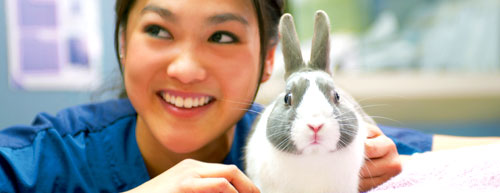Veterinary Work Experience In The Heart of Africa

Applying for any university course is a tough business, with so much competition for relatively few places. Veterinary medicine is one of the hardest courses to embark on and academic ability alone is not enough to get accepted. Veterinary work experience is one of the most proactive ways to enhance your CV and show your tutors that you are committed to your subject and are willing to go that extra mile.

There are some excellent companies on the market offering very exciting veterinary work experience projects, mainly based in South Africa. These courses have been designed to enhance a student’s knowledge and provide valuable work experience in the field. The courses are run alongside the Extra Mural Studies (EMS) stipulations and are led by experienced professional vets already working in the area. South Africa is an animal lover’s paradise and students will have ample opportunity to work with all manner of mammals, birds and reptiles. The mentors will take students out into the field, work with them in the clinics and encourage attendance to professionally led talks and lectures. Exposure to some of the conservation issues, ethical debates and the important on-going research is also a large part of the course.
What Students Will Learn On The Course
The veterinary work experience programs in South Africa aim to get the students involved on a very hands-on basis. Theory-based learning will be undertaken in the classroom in support of the fieldwork with the talks and lectures aiming to enhance this further. The Shamwari Centre is one of the most prestigious places in South Africa offering courses for veterinary students and the in-depth Vet Eco Experience Course is one of the most popular.
Working in South Africa brings with it many different challenges from those encountered on UK based work experience projects. Students will have to learn how to dart and immobilize animals so that they can have ear tags fitted, be treated with necessary drugs or have samples of blood taken for DNA research. Although all of the large animals are subjected to darting at some point, this is particularly important for the endangered rhino, whose fate has remained precarious for some years. The center is working very hard to turn the tables for the rhino and is engaged in cutting edge research that will hopefully provide the information to do so. Students on this course will have plenty of time to practice their darting techniques and, with practice, will soon gain the confidence required to take on the work.
South African wildlife has been very much affected by modernization and human development, which has lead to a reduction in potentially habitable land and left many species in a somewhat perilous state. With increased awareness and education, however, and the establishment of national parks and protected reserves, things are turning around. The delicate ecosystems that provide the lifeline for many of these animals are being reinstated so that species can begin to thrive once more. In addition to this, translocation of some animals, such as the Antelopes is underway in order to encourage breeding and help numbers flourish once more.
From emergency medical procedures to game monitoring, working with injured animals in the clinic to data collecting, this course aims to introduce students to a little of everything. Telemetry tracking is a useful skill to learn and working in the breeding centre provides a real insight into the care needed to breed wild animals.
Undertaking veterinary work experience gives the student a realistic idea of what the work involves and embarking on a course in Africa has the added advantage of offering the opportunities to learn very different skills. For those students already involved in a university course studying veterinary medicine, this course will only enhance learning, build confidence and offer a truly valuable life experience.
